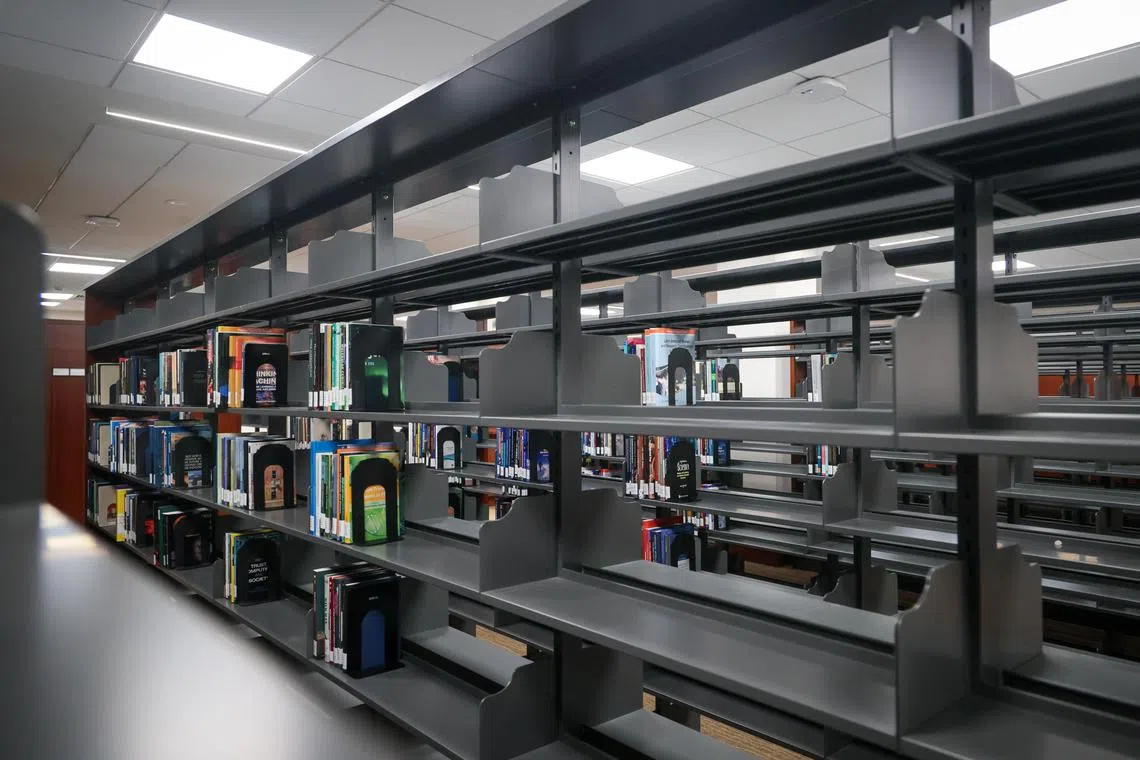- Joined
- Jul 25, 2008
- Messages
- 15,301
- Points
- 113
Public accounts watchdog calls for strengthening grants governance

Technology such as data analytics and artificial intelligence can be used to detect fraud, the Public Accounts Committee suggested in its latest report.
Jan 21, 2025
SINGAPORE – Lapses in the management of grants continue to be a recurring finding in the yearly audit of ministries and agencies, said Parliament’s public accounts watchdog, as it called for more to be done to strengthen the administration and disbursement of grants.
Technology such as data analytics and artificial intelligence can be used to detect fraud, the Public Accounts Committee suggested in its latest report released on Jan 21.
It also emphasised the importance of coordination and risk assessment when designing grant schemes to ensure a balance between controls and responsiveness.
The committee, which comprises eight MPs, is tasked with scrutinising how public funds are spent, and tracks what government agencies have done to correct irregularities in using the funds.
To this end, it reviewed the Auditor-General’s report for the 2023-2024 financial year, focusing on weaknesses in procurement and contract management, as well as lapses in the management of parenthood support grants at the Ministry of Social and Family Development (MSF) and Early Childhood Development Agency (ECDA).
It also looked at three broader issues that could have an impact on spending, financial governance and controls in the public sector: grants management, social spending on seniors, and the resilience and recovery capability of government IT and digital systems.
In the course of its inquiry, the committee received written replies from eight ministries – the Ministry of Culture, Community and Youth, Ministry of Education, Ministry of Finance (MOF), Ministry of Health (MOH), Ministry of Home Affairs, Ministry of National Development, MSF, Ministry of Trade and Industry – and the Smart Nation Group (SNG), which comes under the Ministry of Digital Development and Information.
It also held four meetings and heard oral representations by the permanent secretaries from MOF, MOH and SNG.
On the issue of grants management, the committee said given that government spending on grants is likely to increase in the future, it is crucial to improve grants governance at the whole-of-government level.
MOF informed the committee that it is not possible to prevent and detect all grant fraud, lapses and abuse due to the volume and complexity of grants given out, human error, and the changing modus operandi of fraudsters.
The ministry also said there are trade-offs between speed of disbursement, controls and costs.
MOF added that there is no need to withhold funding for new schemes, as the overall system was functioning well and there were no systemic issues.
To improve governance, the ministry said it implemented a grants governance framework in 2020 that provides a consistent set of guidelines to agencies that are giving out grants.
In addition, it has developed a fraud risk management checklist together with the Commercial Affairs Department, that agencies can use to assess risks and detect fraud and abuse of grants. It also worked with the Government Technology Agency to develop network analytics that agencies can use to perform due diligence checks.
West Coast GRC MP Foo Mee Har, who chairs the committee, said in a statement: “We note MOF’s assurance that the overall system is functioning well, with no systemic issues.
“Nevertheless, the Government should continue to strengthen grant administration and leverage data analytics and technology to enhance fraud detection capabilities.”
On social spending on seniors, the committee noted that $7.4 billion was spent on senior-specific schemes from financial years 2020 to 2023.
It urged the Government to continuously assess the schemes to ensure that funds are accurately disbursed and reach the intended recipients, and that desired outcomes are achieved.
On the resilience of government IT and digital systems, the committee raised concerns about the increased occurrences of cyber attacks globally. It added that as Singapore progresses in its digitalisation efforts, it has become even more crucial that government data and technology infrastructure are resilient against cyber attacks, and agencies have service recovery and business continuity plans in place.
The committee also urged the Government to take measures to keep citizens safe in the digital world, and ensure access to government services for those who are less digital-savvy, such as seniors.
In its review of the Auditor-General’s report, the committee called for stronger oversight over projects outsourced to outside consultants and contractors.
It added that agencies need to be held accountable to ensure that services are delivered and payments are made only for work done.
The committee had also looked at the thematic audit on parenthood support measures that the Auditor-General’s Office (AGO) had flagged.
The measures were administered by MSF and ECDA, and some $4.55 billion was disbursed under these schemes during the audit period from April 2021 to end-June 2023.
The AGO had found that there was a misuse of government-paid parental leave and withdrawals from the Child Development Account to buy unapproved items, including adult-size sunglasses.
The committee said MSF is enhancing its fraud detection capabilities, and will automatically route claims with irregularities for manual verification. Legislative changes are also expected by June 2025 to address fraud and abuse of the leave system.
In addition, the committee said MSF has lodged a police report against three of the 32 individuals deemed to have highly suspicious claim behaviour. For the remaining cases, MSF has requested further supporting documents from employers, and will recover overpayments if any.
On the lapses and weaknesses highlighted by the AGO, Ms Foo said: “It is important for agencies to examine and understand the underlying root causes, so that effective action plans are developed and implemented to prevent recurrence.
“The committee noted that there continues to be common lapses observed across different agencies. For such areas, it would be important for central agencies to consider the systemic improvements that should be implemented at the central level.”








